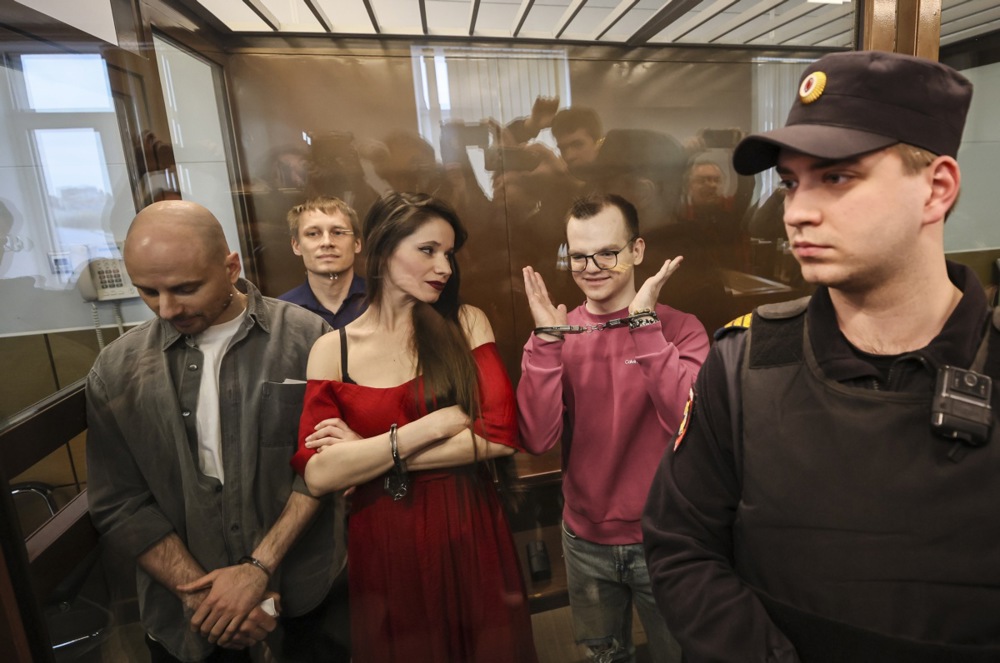The IPI global network today condemns the five and half year prison sentences handed to Russian journalists Antonina Favorskaya, Artem Kriger, Konstantin Gabov and Sergey Karelin.
The four journalists were arrested in 2024, in the months after the death in jail of Russian opposition leader Alexey Navalny, on charges of working for an “extremist” organization. The charges were based on work that the journalists allegedly carried out for the Anti-Corruption Fund (FBK), the organization led by Navalny which exposed wrongdoing by top Russian officials.
The FBK is legally designated as an “extremist” organization in Russia, and working for it is punishable by up to six years in prison. All four journalists deny having worked for any of the media projects linked to FBK, or for any other initiatives led by Navalny and his team. FBK representatives have also denied the journalists’ links to the organization.
“By sentencing these four journalists to long years behind bars, Russian authorities have again shown their readiness to fully instrumentalize laws on ‘extremism’ to pursue independent journalists and other government critics,” said IPI Eastern Europe Advocacy Lead Karol Łuczka.
“Antonina Favorskaya, Artem Kriger, Konstantin Gabov and Sergey Karelin worked for renowned independent media outlets, both Russian and international. They are journalists, not ‘terrorists’, ‘extremists’, or any other absurd and extravagant term that the Kremlin uses to describe its critics.”
A journalist for the independent news outlet SotaVision, Favorskaya was the author of multiple reports on the trials of Navalny in Russia. She recorded what is thought to be the last video of the Russian opposition leader before his death, during a court hearing in his case on February 15. She was first detained on March 17, after she visited Navalny’s grave with two of her colleagues.
Artem Kriger also worked for SotaVision, and was arrested after reporting on Favorskaya’s detention and early court hearings.
Unlike the SotaVision reporters, Gabov and Karelin were hired by international media: Karelin had been a video journalist for the AP, while Gabov reportedly worked for Reuters, although the news agency did not confirm this.
As of April 2025, no fewer than 22 Russian journalists are behind bars on various charges, according to IPI monitoring. Nine of these have either been convicted, or are facing charges, of “disseminating fake news” or “discrediting the Russian army”. These charges are related to publishing verified news on the war in Ukraine.
